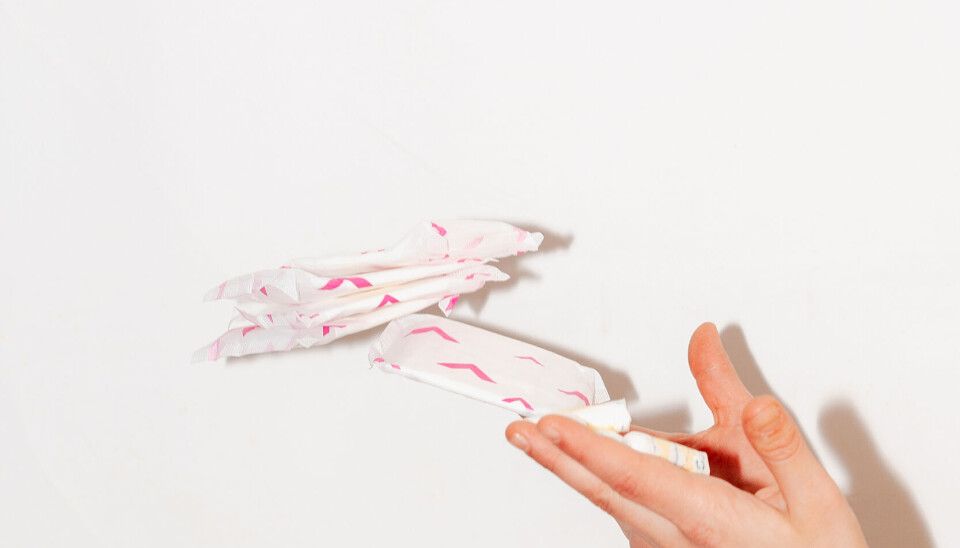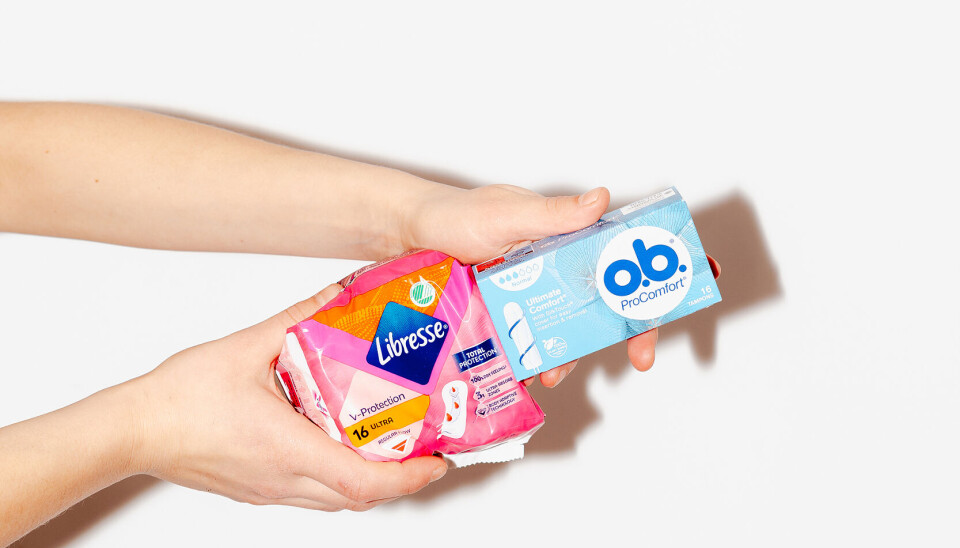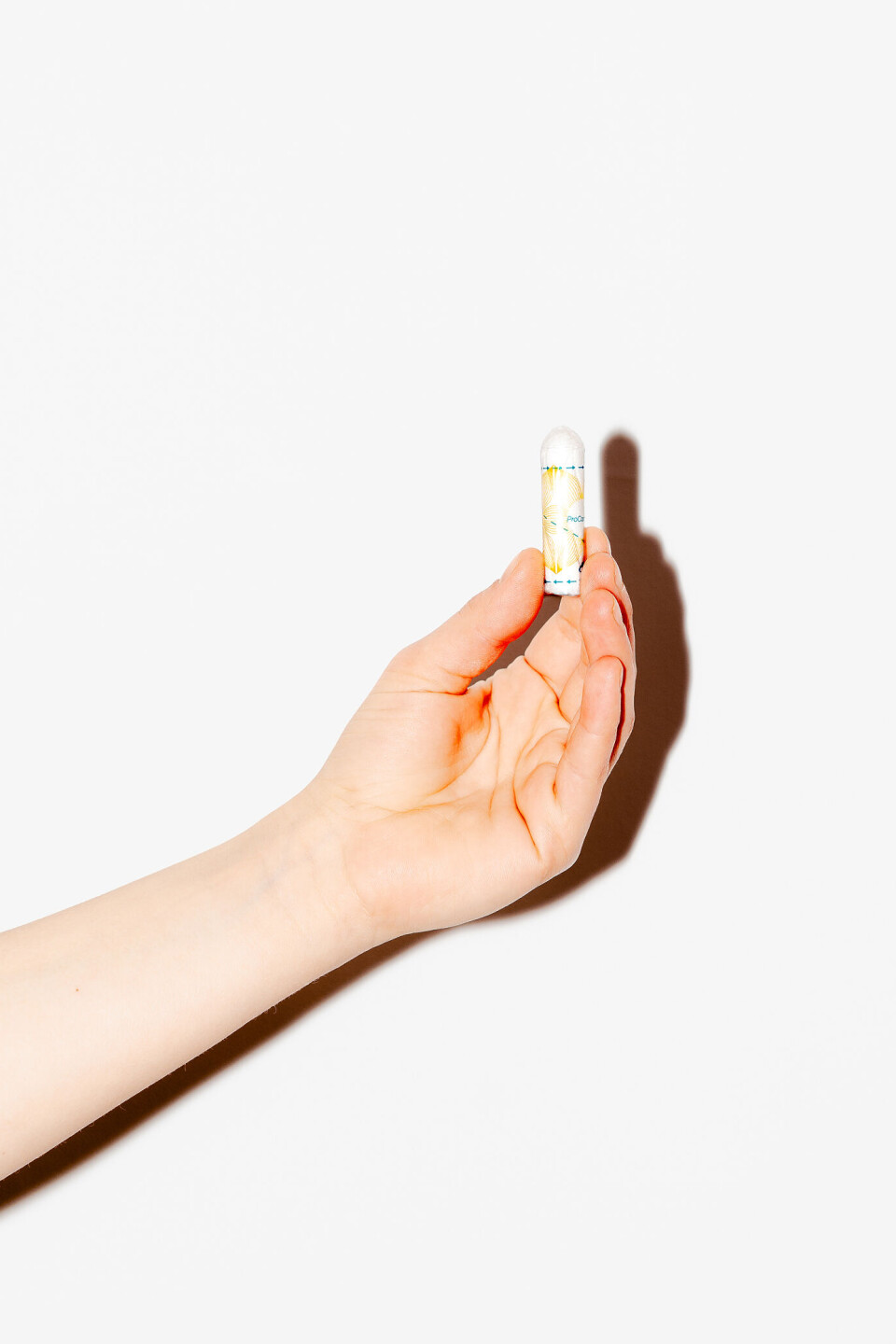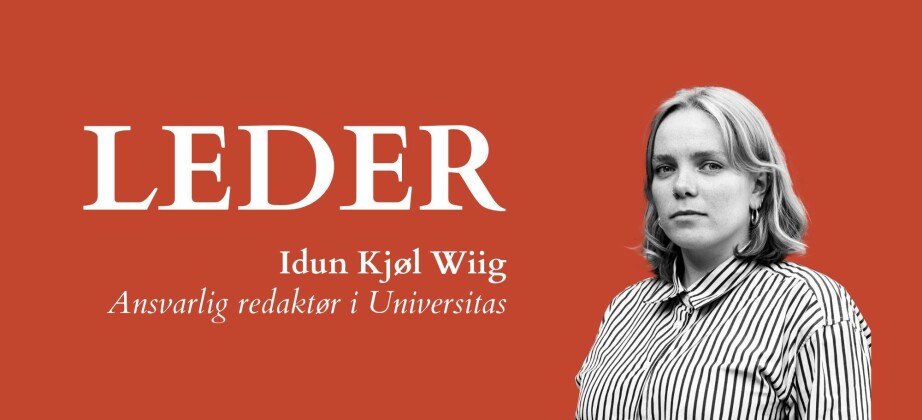
The Struggle Over Period Products at UiO
Student organizations and associations have been trying to push the introduction of free period products on UiO campuses only to meet resistance from faculty members.
Imagine walking into the toilet after a long lecture, focusing only on holding your pee. Once done, you grab your personal toilet paper roll and soap dispenser from your backpack. You wipe, wash your hands, and put everything back, ready for the next time. We expect these essentials to be in public toilets. Yet period supplies are often missing.
Sanitary Products Where Art Ye?
The past few years universities across Norway and Europe have started introducing free sanitary product access at their campuses. Institutions like University of Milan in Italy and Utrecht University in the Netherlands are among those that have adopted this practice.
–It’s something we have been trying to push here at UiO for at least the last couple of years, says Sondre Matthias Klungland, the leader of the Student Parliament at UiO.
In countries such as the UK and France there are governmental plans to mainstream period product supplies in all educational institutions.
But at the University in Oslo (UiO), the student parliament's efforts to introduce free sanitary products have been met by an university management citing budgetary issues, Klungland reports.
–UiO is lagging behind, he says.
Today, the University of Oslo only ensures access to these products on the Silurveien campus, where many students sit their exams.
–This is already a stressful situation, and we do not want an unforeseen lack of sanitary products to become an additional stress factor on top of this, explains Amalie Kvame Holm, Senior Communications Adviser at the university.
–We are now in the process of looking into providing this at other locations as well.
Pads for All

Menstruation is a biological process that involves more than half of the student body of UiO and accessing period products on campus can be beneficial to creating a better and more equal learning environment.
It makes me very angry to know how much of the money I have to spend on these products goes into taxes.
77% of girls between 16 and 24 years old have had unpleasant situations due to lack of access to period products in their school or university, according to Skolekravet, an initiative, jointly launched by the grocery store chain KIWI and UNICEF, to spark a debate and push governmental action to provide sanitary products in Norwegian educational institutions.
—One morning I realized I’d forgotten my pads at home and spent the whole day at the Domus Juridica campus fearing and stressing that I might bleed through, said Elena Lucia, an international master’s student at UiO.
Lucia questions the effectiveness of accessing sanitary products at the Silurveien campus.
—During an exam at Silurveien, I went to the restroom inside the hall where I was sitting my exam and noticed a note saying that pads were available in other toilets on the campus, she says. I put myself in the shoes of somebody in need and it hit me as an uncomfortable and stressful situation to be in.
Taxed More Than Popcorn
UiO is lagging behind.
Sanitary pads in Norway are taxed at a 25% rate, the highest rate applicable. In comparison, a cinema ticket is taxed at just 12%, and popcorn at 15%.
—Buying pads is an expense I need to factor into my monthly budget and it makes me very angry to know how much of the money I have to spend on these products goes into taxes. It does not seem fair to me, Lucia says.
Period poverty is an ongoing problem in the EU, where it is estimated that 1 in 10 people who menstruate cannot afford sanitary products. Poverty is on the surge in Norway as well and students are in a particularly vulnerable situation.
—Sometimes the argument to not put period products in the toilets is that people will take too much of them, but isn’t that exactly the problem? If it is something that they need, that they cannot afford and that is provided, why shouldn’t they take it, ask Adèle Guers and Ayva Macinnes, representatives of SSF, the Student’s Feminist Association at UiO.
Meanwhile, the Student Parliament’s Klungland suggests implementing a technical solution.
—If this is the real issue, it can be corrected for example by using machine dispensers that limit the number of products a person can take at a time.
—The reality is that people who struggle financially tend to use the same sanitary product for a longer time than the recommended 8 hours maximum. As well as being unpleasant, this might even result in a bacterial infection known as toxic shock syndrome which can have very serious health consequences. Providing period products is also a way to protect the health of students, say Guers and Macinnes.
Making the Vulnerable Even More Vulnerable

In case of emergency, it helps to know that the university has your back. Guers and Macinnes argue that period care is a matter of mental care. Packed schedules, commutes between campuses to attend lectures, and short 15-minute breaks can make such situations like this appear a Herculean task to sort out.
—Finding a tampon or pad can be time-consuming and stressful. This is even harder for those without friends or language skills.
Additionally, any talk about periods has an obvious gendered element. Guers and Macinnes further remind that not all who menstruate are women, so access to menstrual products should be ensured for all trans and non-binary people as well.
—This is a gender equality issue, as these are challenges the non-menstruating individuals don’t have to face, Guers and Macinnes say.
Moving in the Right Direction
Both candidates for the next UiO head master run on a platform emphasizing the improvement of student quality of life. Klungland sees available period products as crucial to ensuring a good student life.
—Providing sanitary products to students would improve the learning environment and make life on the campus more student friendly, Klungland points out.
Despite some resistance from university management, efforts to provide free sanitary products at UiO are progressing. Implementing these products on campus requires time and effort.
—A phased approach starting with pilot projects at certain campuses could be a good starting point, continues Klungland.
SFF, UiO’s Student Feminist Association, has recently launched a petition for free menstrual products at UiO.
—Numbers can sway movements more than emotional arguments. If everyone participates, together we can contribute to improving the well-being of the students, concludes Klungland.

































